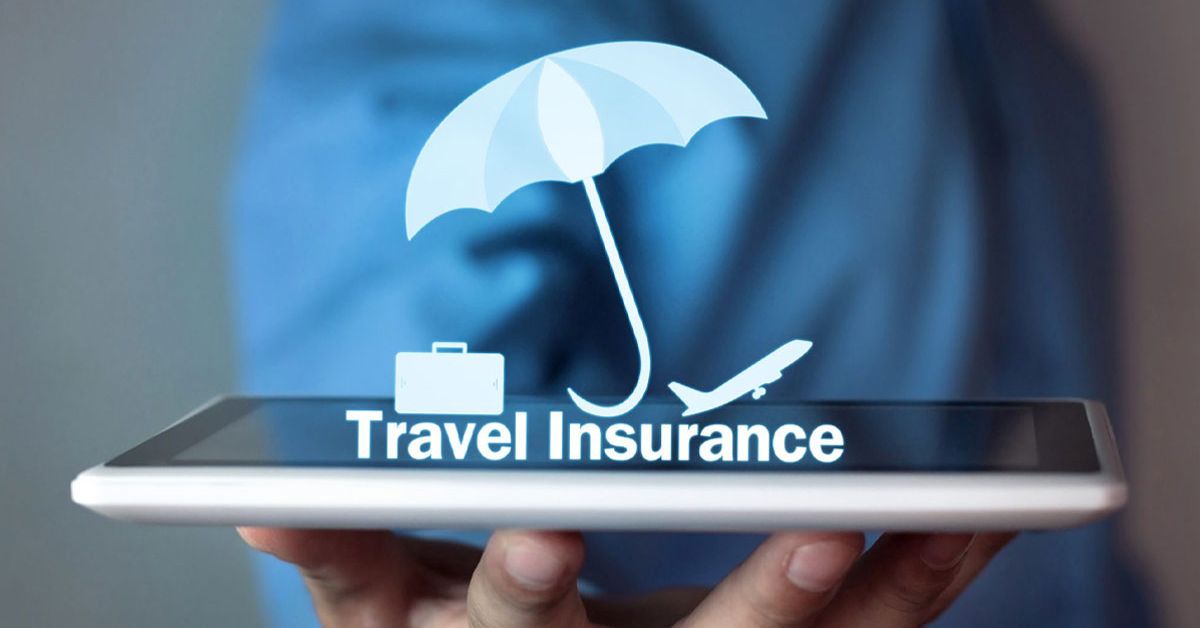Travel is not just a service; it’s a passion and a lifestyle. For travel agents, tour operators, and others in the travel industry, this passion is their business. And to safeguard this business from potential risks, one critical tool is travel management liability insurance. This insurance plays a crucial role in protecting your business, ensuring your passion for travel can thrive.
This comprehensive blog post will explain everything you need to know about this essential coverage, from its importance to selecting the best policy for your needs. So, let’s dive in and discover how travel management liability insurance can save your business.
As a travel professional, you are responsible for creating unforgettable experiences for your clients. However, with that responsibility comes potential risks and liabilities. From booking errors to accidents during trips, there are many scenarios where your business could be held liable.
These incidents could lead to significant financial losses or even legal action without proper insurance coverage. Travel management liability insurance plays a vital role in preventing such outcomes, ensuring that your business can continue to thrive despite unexpected challenges.
How Travel Management Liability Insurance Can Save Your Business
Travel Management Liability Insurance is not just a safeguard; it’s a comprehensive shield for your business. It offers protection against a wide range of potential legal and financial risks in the business travel sector. This includes unexpected travel disruptions, medical emergencies, liability claims, and even losses incurred from trip cancellations or delays. The comprehensive nature of this insurance provides a strong safety net for your business.
By mitigating these risks, you ensure the safety and well-being of your employees and prevent substantial financial losses for your company. Investing in this insurance provides comprehensive protection, a sense of security, and peace of mind, enabling your business to operate more smoothly and focus on growth.
Furthermore, having business travel insurance can also improve your company’s reputation and credibility. Clients and partners will feel more confident working with a business that takes the necessary precautions to protect its employees and assets during travel. This can lead to stronger partnerships, increased customer trust, and better business opportunities. In today’s globalized world, where business travel is becoming increasingly common, it is essential to have comprehensive insurance coverage for all your corporate travels.
Be aware of the importance of such protection before an unexpected event occurs. Invest in business travel insurance now and safeguard your company’s future success.
Comprehending the Cost Factors
Travel management liability insurance is not one-size-fits-all. The cost of the policy can vary widely based on several factors. Here are some key variables that affect the price:
Size of the Agency
The size of your travel agency or tour operation plays a significant role in determining your insurance premiums. Larger agencies with more employees and higher sales volumes generally face higher risks and, thus, higher premiums. On the other hand, smaller agencies may have lower premiums due to reduced risk exposure. It’s important to accurately assess the size of your agency when obtaining insurance quotes.
Type of Services Offered
The type of services your travel agency offers also impacts the cost of liability insurance. For example, you primarily offer package tours that include transportation, accommodations, and activities. In that case, your premiums may be higher due to the increased risk involved in organizing these types of trips. On the other hand, if your agency only offers booking services for individual components such as flights or hotels, your premiums may be lower.
Revenue
Your annual revenue is another crucial factor. Agencies with higher revenues often have more complex operations and handle more transactions, increasing the likelihood of errors. Therefore, higher revenue usually translates to higher premiums.
Coverage Limits
The extent of coverage you choose also impacts your insurance cost. Policies with higher coverage limits offer more protection but come at a higher price. Conversely, lower coverage limits can reduce your premiums but may not provide adequate protection in the event of a significant claim.
Travel Management Liability Insurance
Journey management liability insurance protects travel agents, tour operators, and related businesses from various risks. Travel insurance type of insurance typically includes coverage for professional errors, omissions, and other liabilities that can arise while doing business.
Whether a missed flight connection that ruins a client’s vacation or a booking error that costs a tour company thousands, travel management liability insurance can provide the financial protection needed to manage these risks effectively. The significance of this coverage cannot be overstated. In a world where travel plans can change at a moment’s notice and client expectations are higher than ever, having robust insurance can make the difference between a minor setback and a business-ending disaster.
It protects the company’s bottom line and helps maintain client trust and reliability. A comprehensive travel management liability insurance policy can also cover data breaches and cyber-attacks. In today’s digital age, where travel companies collect and store personal information, the threat of cyber attacks is ever-present.
This type of insurance provides financial support to handle the costs associated with data breaches, such as legal fees, credit monitoring services for affected clients, and damage control expenses.
Apprehending the Cost Factors
The cost of travel management liability insurance can vary widely, depending on several factors. Here’s a closer look at what influences the premiums:
1. Size of the Agency: Larger agencies often face higher premiums due to the increased volume of transactions and potential claims. More clients mean more opportunities for something to go wrong, so insurers charge more to cover this risk.
Conversely, smaller agencies may have lower premiums as they typically handle fewer transactions and have a smaller client base.
2. Revenue: Higher revenue can indicate a more substantial operation, which might involve more complex travel arrangements. This complexity can lead to a higher likelihood of mistakes, translating into higher insurance costs.
Additionally, higher revenue means the agency has more assets to protect, which can result in a higher premium.
3. Coverage Limits: The amount of coverage you choose will directly impact your premium. It’s essential to balance the need for comprehensive coverage with what you can afford. Consider your agency’s assets and potential risks when selecting coverage limits.
For example, frequently booking high-value travel packages may be worth investing in higher coverage limits to protect against possible losses.
4. Claims History: Agencies with a history of claims may face higher premiums as they are considered a higher risk. Conversely, a clean claims record can help lower costs. Establishing proper risk management procedures and minimizing potential risks is crucial to avoid frequent claims. By understanding these factors, you can better anticipate the price and make informed decisions about the level of coverage you need.
Remember that premiums can also be affected by the type and location of your agency and any additional services or products offered. It’s essential to regularly review your coverage and make adjustments as needed to ensure you have adequate protection without overpaying for unnecessary coverage.
Comparing E&O Insurance Options for Travel Agents
Errors and omissions (E&O) insurance is crucial to travel management liability insurance. It explicitly covers mistakes or oversights that might occur in providing professional services. Several options are available to travel agents, each with its own set of features and benefits. Here, we will discuss the most common types of E&O insurance for travel agents and how to choose the best option for your agency.
1. Aon’s Offerings: Aon is a well-known provider of E&O insurance for travel agents. Their policies often include coverage for legal defense costs, settlements, and judgments related to professional errors.
Additionally, Aon offers specialized coverage tailored to the unique needs of travel professionals. This may include protection against travel supplier bankruptcies or mistakes made by independent contractors working for the agency.
2. Other Providers: While Aon is a prominent name, other providers also offer competitive E&O policies. Companies like Hiscox, Chubb, and Travelers provide various levels of coverage, often with customizable options to suit different business sizes and types. Researching and comparing multiple providers is essential to finding the best fit for your agency.
3. Policy Features: When comparing E&O insurance options, consider policy features such as deductible amounts, coverage limits, and exclusions. Some policies exclude specific claims, so reading the fine print is crucial. Additionally, make sure to understand the difference between claims-made and occurrence-based policies.
Claims-made policies only cover claims made during the policy period, while occurrence-based policies cover incidents during the policy period, regardless of when the claim is made. Choosing the proper E&O insurance involves evaluating your specific needs and comparing the offerings from multiple providers.
Look for policies that provide comprehensive coverage without unnecessary exclusions. Consider the insurance company’s reputation and financial stability as well. It’s also essential to assess your risk level and choose coverage limits that adequately protect your business.
In addition to E&O insurance, it’s also wise to consider purchasing cyber liability insurance. With increasing reliance on technology in business operations, cyber-attacks and data breaches are becoming more common.
Case Studies and Real-World Examples
Real-world examples can illustrate the importance of travel management liability insurance more effectively than any abstract explanation. Here are a few scenarios where this coverage has proven essential:
Case Study 1: A travel agent booked a luxury vacation for a couple, but an error in the booking system resulted in them arriving at their destination without a reservation. The couple had to find last-minute accommodations at a significantly higher cost.
The travel agent’s E&O insurance covered the additional expenses, preventing a lawsuit and maintaining the client’s trust. However, the travel agent’s insurance did not cover the legal fees incurred in defending against a potential negligence claim.
Case Study 2: A tour operator organized a group trip to a remote location. Due to unforeseen circumstances, the trip was canceled, and the clients demanded refunds and compensation for their inconvenience. The operator’s liability insurance covered the costs, ensuring the business did not suffer a financial setback. However, the insurance did not cover the damage to the company’s reputation and future business opportunities.
Case Study 3: An agency specializing in adventure travel faced a claim when a client was injured during a guided tour. The liability insurance policy covered the medical expenses and legal fees, protecting the agency from a potentially devastating lawsuit.
These examples highlight how travel management liability insurance can act as a safety net, allowing businesses to recover from unexpected setbacks without crippling financial consequences.
Tips for Selecting the Right Coverage
Selecting the correct travel management liability insurance involves careful consideration and planning. Here are some practical tips to guide you through the process:
1. Assess Your Needs: Start by evaluating the specific risks associated with your business. Consider the types of services you offer, the size of your operation, and any previous claims. This assessment will help you determine the level of coverage you need.
2. Compare Policies: Don’t settle for the first policy you come across. Compare offerings from multiple providers to find the best fit for your needs. Look at coverage limits, exclusions, and premium costs.
3. Consult an Expert: Insurance can be complex, and having an expert on your side can make a significant difference. Consider working with an insurance broker who specializes in travel management liability insurance. They can provide personalized advice and help you find the best policy.
4. Read the Fine Print: Ensure you understand all your policy terms and conditions. Pay attention to any exclusions or limitations that might affect your coverage.
5. Review Annually: Your insurance needs might change over time, so reviewing your policy annually is essential. Make adjustments as necessary to ensure you always have adequate protection.
By following these tips, you can select a policy that offers peace of mind and allows you to focus on growing your business.
Conclusion
Travel management liability insurance is not just optional; it’s a vital component of running a successful travel business. Understanding the coverage, comparing options, and selecting the right policy can protect your business from unforeseen risks and ensure long-term success.
Take the proactive step today to safeguard your passion for travel. Evaluate your insurance needs, consult experts, and choose a comprehensive protection policy. Your business and clients will thank you.
FAQ
What is travel management liability insurance?
Travel management liability insurance is a type of coverage designed to protect travel agents, tour operators, and other businesses in the travel industry from various risks, including professional errors, omissions, and other liabilities.
What factors affect the cost of travel management liability insurance?
Several factors influence the cost, including the agency’s size, revenue, coverage limits, and claims history.
How do I choose the proper E&O insurance for my travel agency?
Compare policies from multiple providers, consider policy features such as deductible amounts and coverage limits, consult an expert, and read the fine print.
Why is travel management liability insurance important?
This insurance provides financial protection against risks such as booking errors, trip cancellations, and client injuries, allowing businesses to recover from setbacks without crippling financial consequences.
Can I customize my travel management liability insurance policy?
Many providers offer customizable options to suit different business sizes and types. Consult with an insurance broker to find the best policy for your needs.




